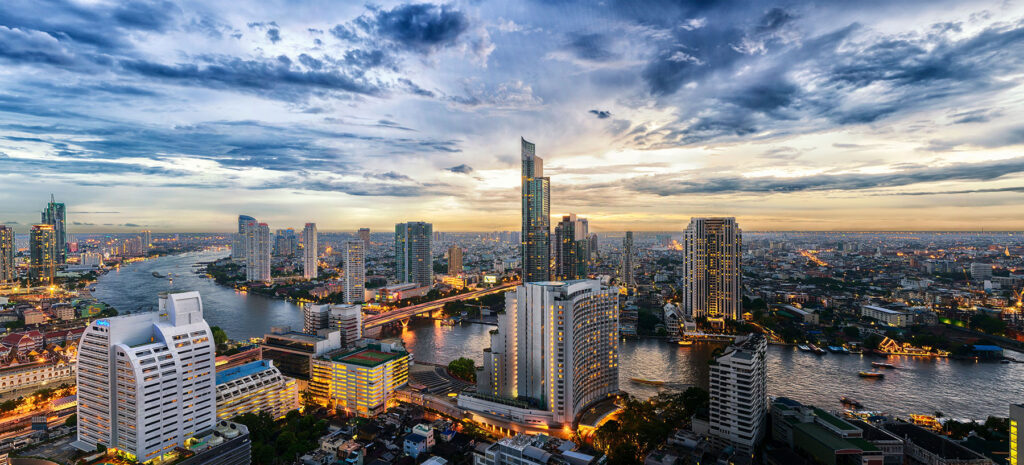Thailand Moves Towards Legalising Casinos: A Game-Changer for the Economy
Recently announced on many reputable news outlets including Reuters, Thailand is on the verge of a major economic shift as plans to legalise casino-entertainment complexes move closer to reality. With the government approving a bill in principle, these large-scale projects are set to transform key cities like Bangkok, Chiang Mai, Phuket, and Pattaya. The first of these entertainment complexes is expected to open as early as 2029.
A New Era for Thailand’s Entertainment Industry
The Thai government has been discussing casino legalisation for years, with the primary goal of boosting tourism and attracting foreign investment. Now, the process is accelerating, with seven major international investors showing strong interest in participating in these large-scale developments. One of the key players eyeing Thailand’s gaming market is Macau-based Melco Resorts & Entertainment, which recently established a Bangkok office to explore potential opportunities.
The proposed entertainment complexes will be built on state-owned land, with each site covering approximately 300 rai (about 120 acres). These complexes will not only feature casinos but also include luxury hotels, amusement parks, international convention centres, and concert venues – creating year-round attractions that go beyond gambling.
The Bill and Its Regulations
On Monday, Thailand’s cabinet approved the bill in principle, marking a major milestone in the country’s path toward legalised casinos. The bill will now be submitted to parliament for deliberation, a process expected to take between seven to nine months before it becomes law.
Key provisions of the bill include:
- A policy board chaired by the Prime Minister to oversee project approvals and regulate the industry.
- Licences valid for up to 30 years, ensuring long-term investment stability.
- A 5-billion-baht registration fee for operators, plus an annual payment of 1 billion baht per complex.
- Strict location selection, ensuring casinos are integrated within broader entertainment zones rather than standalone gambling hubs.
Economic Impact and Investor Confidence
Each complex will require an investment of over 100 billion baht (approx. $2.8 billion), with construction timelines set at three to five years. However, some projects may begin operations in the third year of construction, bringing early economic benefits.
This initiative is expected to:
- Increase government revenue through taxation and licensing fees.
- Boost tourism, attracting high-spending international visitors.
Potential Impact on Phuket’s Real Estate Market
While specific locations for casino developments are not yet confirmed, Phuket is a prime candidate due to its well-established tourism sector and luxury property market. Should a casino-entertainment complex be approved for the island, it could drive significant demand for real estate, particularly in areas with large plots of undeveloped land. Not surprisingly, there are a substantial number of discerning opportunists ready to pull the trigger if the likely licence approval is confirmed.
At Charlesdel, we have already received calls from investors looking for land in Phuket, particularly in light of Thailand’s move toward casino legalisation. We are happy to advise on the most suitable areas for investment. The north of Phuket stands out as a strong option due to relatively affordable land prices, making it an advisable choice for investors looking to position themselves ahead of potential developments.
Concerns and Challenges
Despite the potential economic benefits, casino legalisation remains a controversial topic in Thailand. Critics argue that the government has not yet provided clear strategies to mitigate potential social issues such as problem gambling and organised crime. Opposition leaders have called for greater transparency in the licensing process to prevent conflicts of interest.
While casino development will bring in significant investment, some experts question whether it will truly improve Thailand’s long-term economic competitiveness. Concerns have also been raised about how the government will handle revenue distribution and implement social safeguards.
Final Thoughts
The legalisation of casinos in Thailand is more than just about gambling – it’s about economic growth, tourism expansion, and large-scale investment. If managed correctly, this move could elevate Thailand’s position as a global entertainment hub, unlocking billions in new revenue streams.
With parliamentary approval expected within the next year and construction set to begin soon after, the countdown to Thailand’s first legal casino is well underway. Investors, developers, and policymakers must now ensure that the transition is strategic, well-regulated, and beneficial for all stakeholders.



